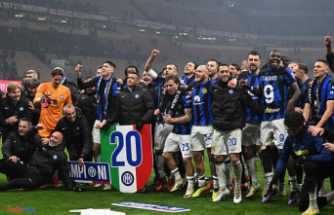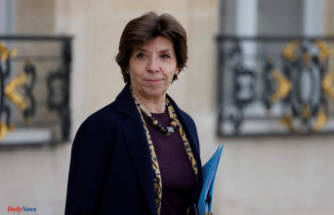There are two or three propitious paradoxes in Julián Marías, the agreement without agreement, by Ernesto Baltar (edited by the FAINS Foundation). First: Marías, who in the distance we perceive as a well-recognized figure, was actually an excluded, a marginalized that had to make a living by writing what was, giving classes where it was. Second: The nucleus of the DNA of the thought of him was a child promise he kept all the life of him: he swore he would never lie. And anyone would think that this eagerness to tell the truth would lead to an adversative and lonely philosophy, but Marías was the opposite: a compassionate philosopher, almost naive in the good faith of him.
"Many people who dealt with Marías use that word, ingenuity. He believed that better wrong before thinking badly, "explains Ernesto Baltar. "His challenge of him consisted of making this attitude of Concord compatible with the principle of not accepting the lie. Marías tells us that we have to live in authenticity but be open to others, to think that the other can be right and make an effort to understand it. The understanding of reality is not incompatible with the understanding of others ».
The third paradox in the Biography of Julián Marías is personal: At 35, he had lost the civil war, he had been betrayed for his best friend and had passed through prison, he had received the humiliation of suspending in his doctoral thesis, And he had seen his parents and a son had to die. And yet, he went ahead.
What did he keep it? The first thing, the sense of loyalty from him to a school, to some teachers that he related to the city of him, Madrid; With the woman of him, Dolores Franco, and with the faculty in which he studied, that of Street San Bernardo. The Old World of Diario El Sol, the residence of students and the rationalist architecture ... «Zubiri, Gaos, García Morente and Ortega Gasset, Of course. It is curious that Marías felt disciple especially from the distance after the war. The interesting thing is that this tradition had a counterpoint in the figure of Unamuno, which was a figure opposed in a certain way to Ortega and Gasset. Marías tried to reconcile those two teachers, the opposition between reason and life of Unamuno and the Racevitalism of Ortega, "explains Baltar. "For many years, he felt that his vital mission was to save the Spanish cultural tradition that had been broken with war. The philosophy of the School of Madrid, 98, the literature of the first decades of the 20th century ».
Can we talk about the 1930s? From the trip from the idealism of 1931 to the 1939 desolation? The Baltar Book tells that Marías, still adolescent, felt the project of the II Republic as its own. She participated in the celebrations of April 14 but, the next day, she already detected that something failed, the lack of chivalry in the mockery against the royal family, a drunkenness in brutality. «Chabacanería» was the word he used. In the following years, the Student Marias lived with ambiguity the politics of the Republic. He shared the background but he was alarmed the form, "the excessive politicization of daily life, the fact that each gesture was relevant in a political sense. Marías knew that ideas are important but people are more, "Baltar says.
The war took him 22 years. He fought with the Republic and advised the military who negotiated the surrender in 1939. In principle, Marías, a young bourgeois and Catholic, never linked to socialists, communists or anarchists, was not in the worst possible position for a new life in the dictatorship . However, the regime chose to take revenge on Ortega and Gasset. First, he sent him to jail with the extravagant accusation of propagandist of the USSR. The friend of him Carlos Alonso del Real was the source. "We still have not been able to know why he gave it to him. If they were coerced, if he was envious as many testimonies of the time say, if he received a prize for it ... for Marías himself was all incomprehensible. "
The following was the suspended thesis, academic ostracism and economic precariousness. Marias translated, wrote custom, he gave classes and only when Ortega returned to Spain, she found a way to take the family of him. Together they founded the Institute of Humanities, which opened the doors of the United States. Since 50, the philosopher passed semesters in several happy colleges. He never thought about leaving Spain.
Those years were also politically relevant with an internal opposition to the dictatorship, far from the clandestinity on the left. At that time, he entered the category of liberal and conservative thinker, unfriendly for hard line. Then, the Vatican Council arrived II, which he lived and celebrated as an intellectual liberation, and the counterculture in the 60s and 70s. "He said that the counterculture had taken his students to sadness. He had convinced them that the structures were wrong, they were against him. And it is true, the structures are always bad. But that can not snatch joy to youth, "explains Baltar.
And the transition? It was Marías' victory. But it was not a complete triumph. How was it going to be?
Date Of Update: 09 November 2021, 21:42











